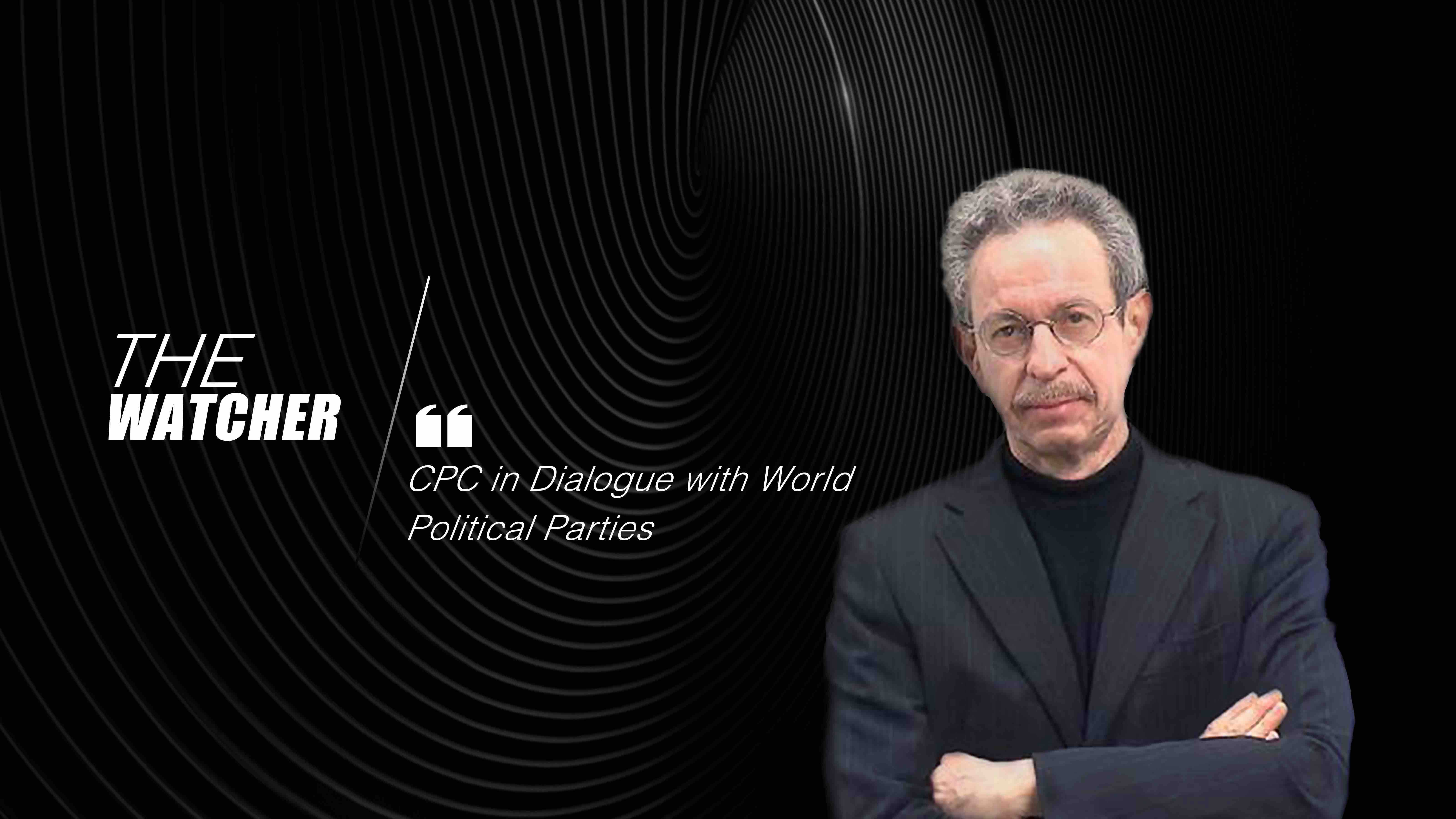
China
21:57, 08-Dec-2017
The Watcher: Why the CPC in Dialogue with World Political Parties happened
Robert L. Kuhn

I’m Robert Lawrence Kuhn and here’s what I’m watching: The Communist Party of China, the CPC, China’s ruling party, hosting a special “high-level meeting”: a Dialogue with World Political Parties.
President Xi Jinping’s theme: Working Together Towards a Community with a Shared Future for Humanity and a Better World: Responsibilities of Political Parties. The CPC invited representatives of nearly 300 parties and political organizations from more than 120 countries to Beijing as the CPC shares its development model with other political parties, as well as to learn from their experiences and practices.
At the Dialogue, there were four main topics:
First, CPC sharing party-building experience with world political parties. Second, CPC's contributions to world peace and common prosperity. Third, President Xi Jinping’s call for world political parties to build a community with a shared future for humanity. And fourth, participation in the Belt & Road Initiative, which helps to realize the community with a shared future for humanity.
But what was the CPC’s underlying motivation for the Dialogue? Why political parties? Which parties attended? Is China exporting its communist ideology surreptitiously, as some critics claim? What was the impact?
To me, what happened at the Dialogue is less interesting than why the Dialogue happened, and what it portends for China’s increasing engagement with the world.
Addressing the Dialogue, President Xi called on world political parties to play a guiding role in building this community with a shared future for humanity, which he stressed multiple times, and creating a peaceful, prosperous and more equal world, upping the responsibilities and powers of political parties. He said that the CPC has been in regular contact with over 400 political parties and political organizations from more than 160 countries and regions and China’s "circle of friends" is expanding continuously.
Exemplifying China’s "New Era," where China is offering Chinese wisdom and Chinese solutions to world problems, the CPC as a party, as well as China as a country, is now proactive in international engagement. The point of debate, as it were, is shifted from whether the China model of a perpetually ruling party with all that entails is good for China, to how the China model is good for other countries.
Certainly, China advocates that each country should decide its own developmental mechanisms. While some criticize China’s “increasingly aggressive and protectionist policies” as contradicting Xi’s grand vision, Xi stresses that China’s rise benefits every country and that China will not "export" its political system. While Dialogue participants skew to left-leaning parties in developing nations, the event signals that the CPC is reaching out globally with pride and confidence, explaining developmental benefits of party leadership and party building.
Why the minimum coverage of the Dialogue in the international media? A conspiracy to contain China? No. It’s more that journalists are just not getting how a transformed CPC under Xi affects global politics. Look for more exchanges between the CPC and foreign political parties. But the CPC is quite unlike any other political party anywhere.
To appreciate how so… I’m keeping watch. I’m Robert Lawrence Kuhn.
(Dr Robert Lawrence Kuhn is a CGTN anchor, a public intellectual, international corporate strategist and investment banker.)

SITEMAP
Copyright © 2018 CGTN. Beijing ICP prepared NO.16065310-3
Copyright © 2018 CGTN. Beijing ICP prepared NO.16065310-3